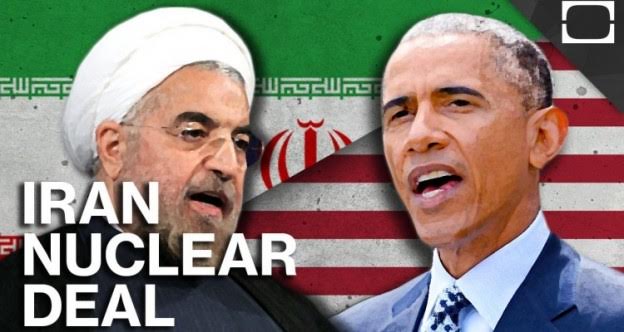The Nuclear Agreement with Iran is good for the US
 The main opposition to the agreement with Iran comes from Israel. The Israelis fear Iran dominance in the region and want an Iran hobbled by sanctions.
The main opposition to the agreement with Iran comes from Israel. The Israelis fear Iran dominance in the region and want an Iran hobbled by sanctions.
Ralph E. Stone Global News Centre
(SAN FRANCISCO) On July 14th, the U.S., China, France, Germany, Great Britain, and Russia reached an agreement with Iran to “to limit Tehran’s nuclear ability in return for lifting international oil and financial sanctions.” In reality, the negotiations were less about curbing nuclear proliferation and more about international trade and U.S. prestige. On balance, this Iran nuclear agreement is realistic, pragmatic and, on balance, good for the U.S.
Opponents of the agreement wanted an Iran unconditional surrender. However, these were negotiations — a dialogue between Iran and six nations with a goal of reaching a mutually beneficial outcome.
The negotiation was not about the continuation of sanctions or war. A war with Iran is not a viable option. After Iraq and Afghanistan, the U.S. is in no position to start a war with a well-armed opponent like Iran. And the negotiations were not about Iran’s nuclear-weapons program. Why, because Iran has no nuclear weapon. Even Mossad, Israel’s national intelligence agency, says there’s no evidence of such a program.
What was really at stake in these negotiations was international trade and U.S. prestige. Iran has roughly 10 percent of the proven petroleum reserves and a population of more than 77.45 million seeking goods in exchange for this oil. Iran wants to trade with other countries and other countries want to trade with Iran. Sanctions stand in the way.
The reputation of the U.S. was also at stake. If the U.S. didn’t reach a deal with Iran, China and Russia probably would and there is no guarantee that the United Kingdom and Germany would stick around if the U.S. walked away from the negotiations. The alternative was for the U.S. to reach a deal or find itself on the sidelines.
The main opposition to the agreement with Iran comes from Israel. The Israelis fear Iran dominance in the region and want an Iran hobbled by sanctions. Predictably, the Israel lobby opposes the agreement. It is no secret that the American Israel Public Affairs Committee (AIPAC) — widely regarded as the most powerful foreign-policy lobby in Washington — is exerting its influence on members of Congress. The agreement has exacerbated the longstanding frictions between Obama and Netanyahu. But isn’t it time for the U.S. to begin a less pro-Israel approach to Middle East affairs?
I note that while several Jewish groups are opposing this Iran nuclear agreement, the liberal pro-Israel advocacy organization J Street has begun a multimillion dollar national campaign in support of the agreement.
I urge Congress to fully support this Iran nuclear agreement.
_______________________________________________________________________________
 Global News Centre writer Ralph E. Stone was born in Massachusetts. He is a graduate of both Middlebury College and Suffolk Law School. We are very fortunate to have this writer’s talents in this troubling world; Ralph has an eye for detail that others miss. As is the case with many GlobalNewsCentre.com writers, Ralph is an American Veteran who served in war. Ralph served his nation after college as a U.S. Army officer during the Vietnam war. After Vietnam, he went on to have a career with the Federal Trade Commission as an Attorney specializing in Consumer and Antitrust Law. Over the years, Ralph has traveled extensively with his wife Judi, taking in data from all over the world, which today adds to his collective knowledge about extremely important subjects like the economy and taxation. You can send Ralph an email at this address [email protected]
Global News Centre writer Ralph E. Stone was born in Massachusetts. He is a graduate of both Middlebury College and Suffolk Law School. We are very fortunate to have this writer’s talents in this troubling world; Ralph has an eye for detail that others miss. As is the case with many GlobalNewsCentre.com writers, Ralph is an American Veteran who served in war. Ralph served his nation after college as a U.S. Army officer during the Vietnam war. After Vietnam, he went on to have a career with the Federal Trade Commission as an Attorney specializing in Consumer and Antitrust Law. Over the years, Ralph has traveled extensively with his wife Judi, taking in data from all over the world, which today adds to his collective knowledge about extremely important subjects like the economy and taxation. You can send Ralph an email at this address [email protected]



































Leave a Reply
You must be logged in to post a comment.